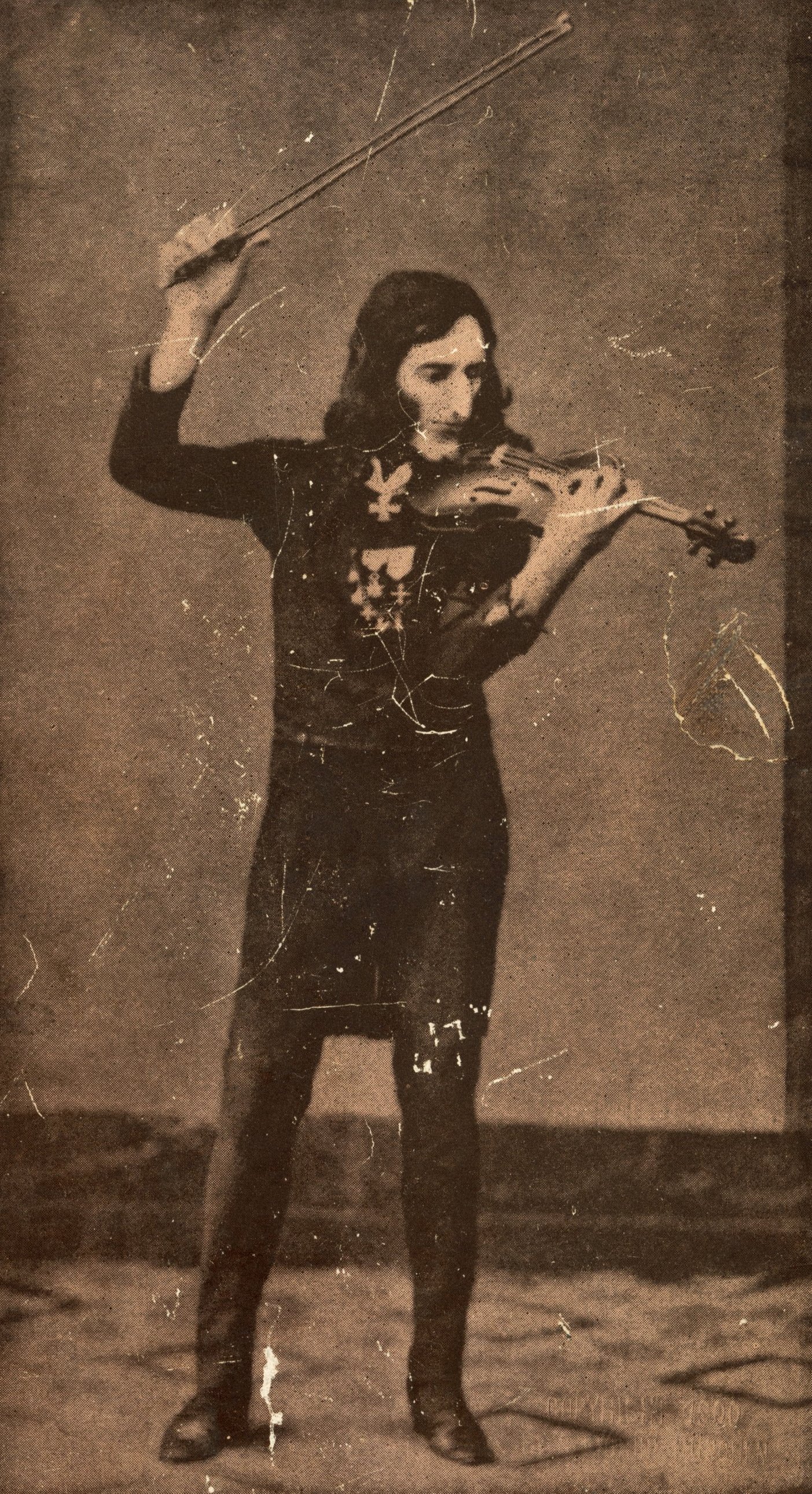
Niccolo Paganini (1782-1840) was the most celebrated violin virtuoso of his time and beyond. It was transmitted to me by my father that Niccolo was my 7th grandfather and upon the death of my father I inherited Paganini memorabilia, and some of his personal belongings. I have embarked on several pilgrimages to Italy, France, Portugal, and Washington D.C to find evidence if his impact and lingering presence. This is a photograph of Niccolo Paganini 61 years after his death. Although no photographs of Paganini seem to exist, this daguerreotype was famously forged in Turin in 1901. It was one of the first photo hoaxes in the history of photography.
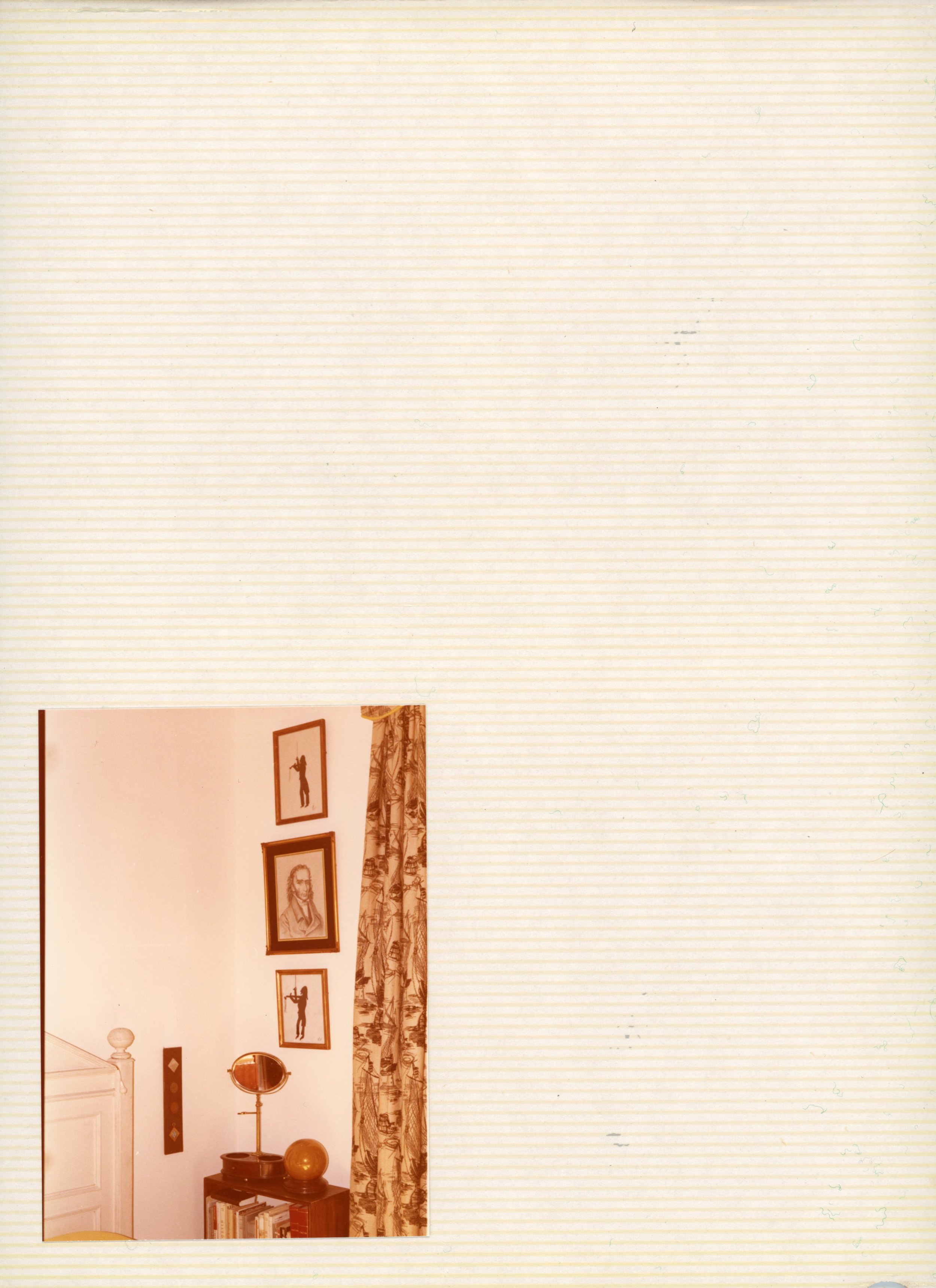
The Paganini wall was a permanent form of tribute to Niccolo Paganini at my grandmother Milu Paganini’s house. The wall embodied the devotion towards him. 1970s

The Paganini books which I inherited represent both my material and immaterial heritage.
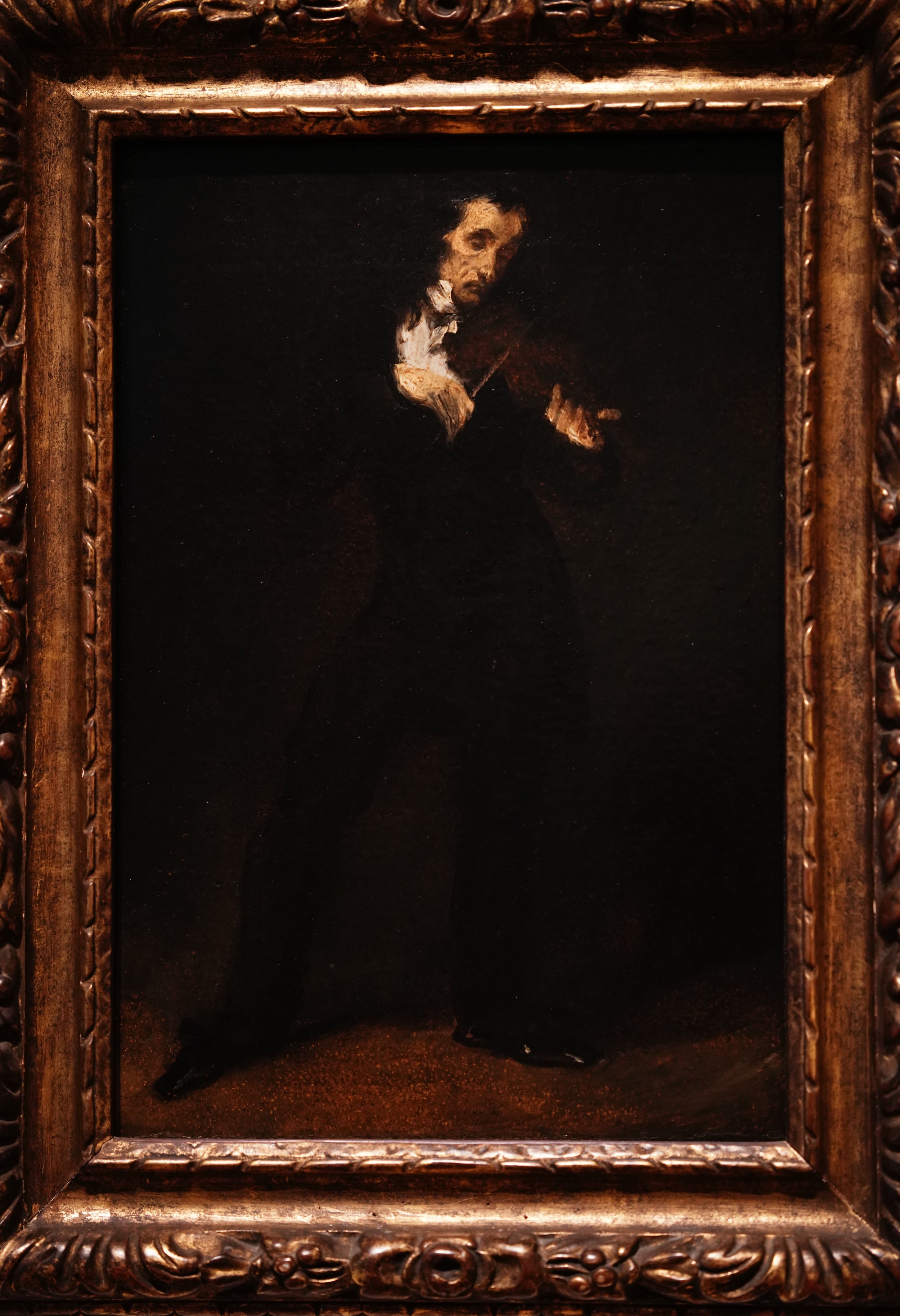
Eugène Delacroix’s Paganini. Delacroix had seen Paganini perform at the Paris Opera in 1831 and painted it soon after. 91 years after that, Duncan Phillips acquired the painting, which he called a “tiny soul-portrait”. 101 years after that I saw it at the Phillips Collection in D.C.
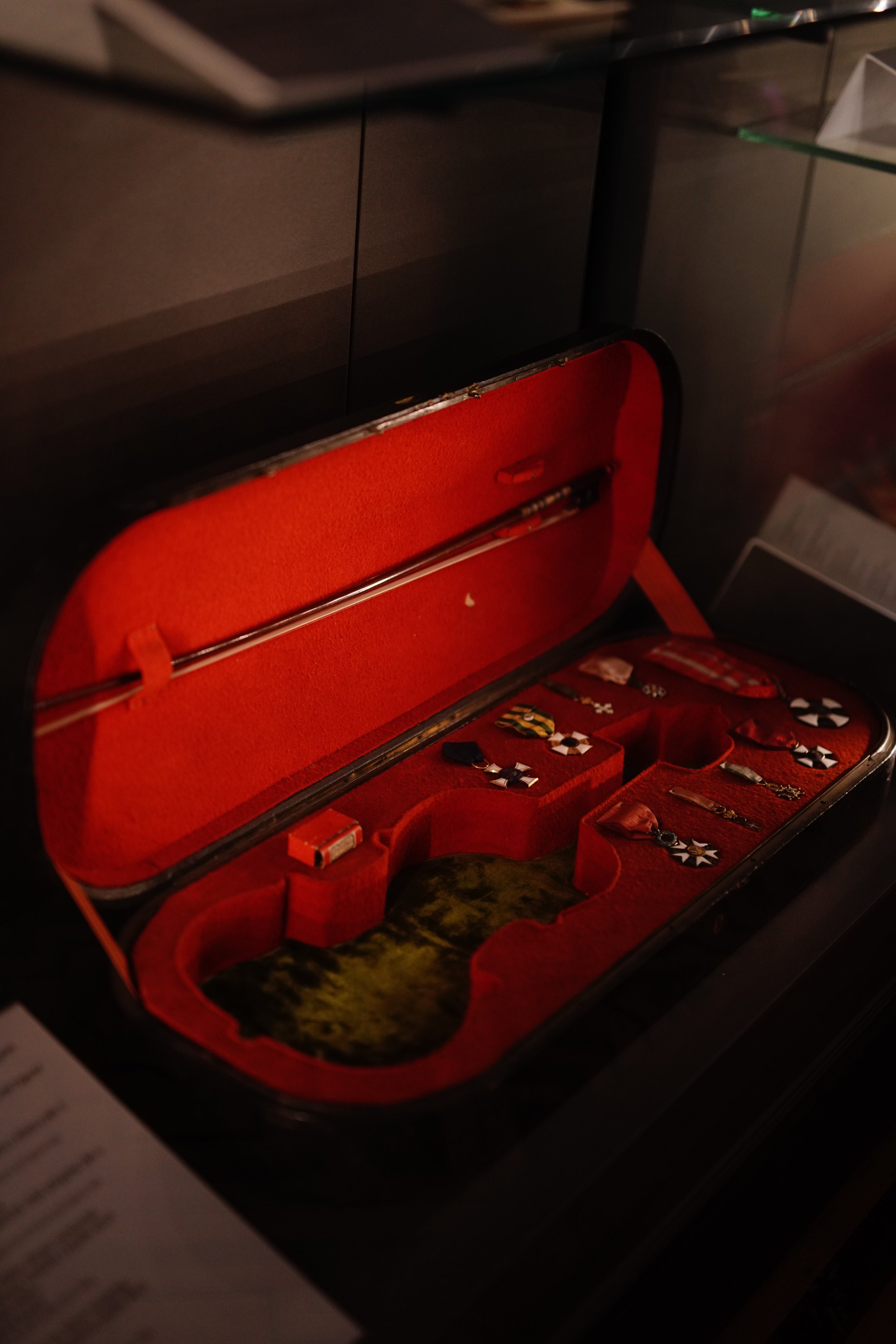
Niccolo Paganini's violin case at Palazzo Tursi in Genova. 2022
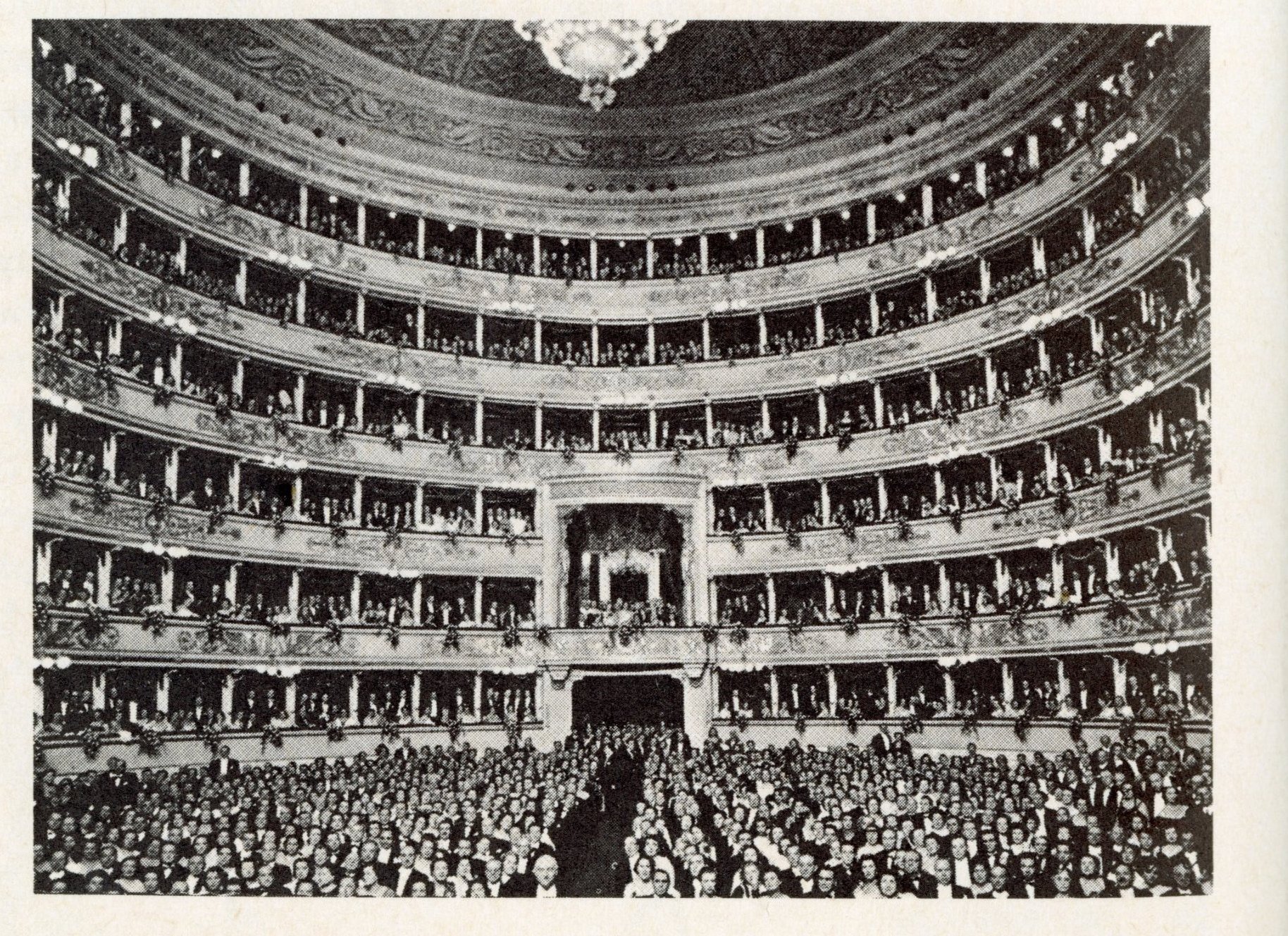
An etching of Niccolo Paganini 's audience at Teatro Scala in Milan, in 1813. All these people are now souls.
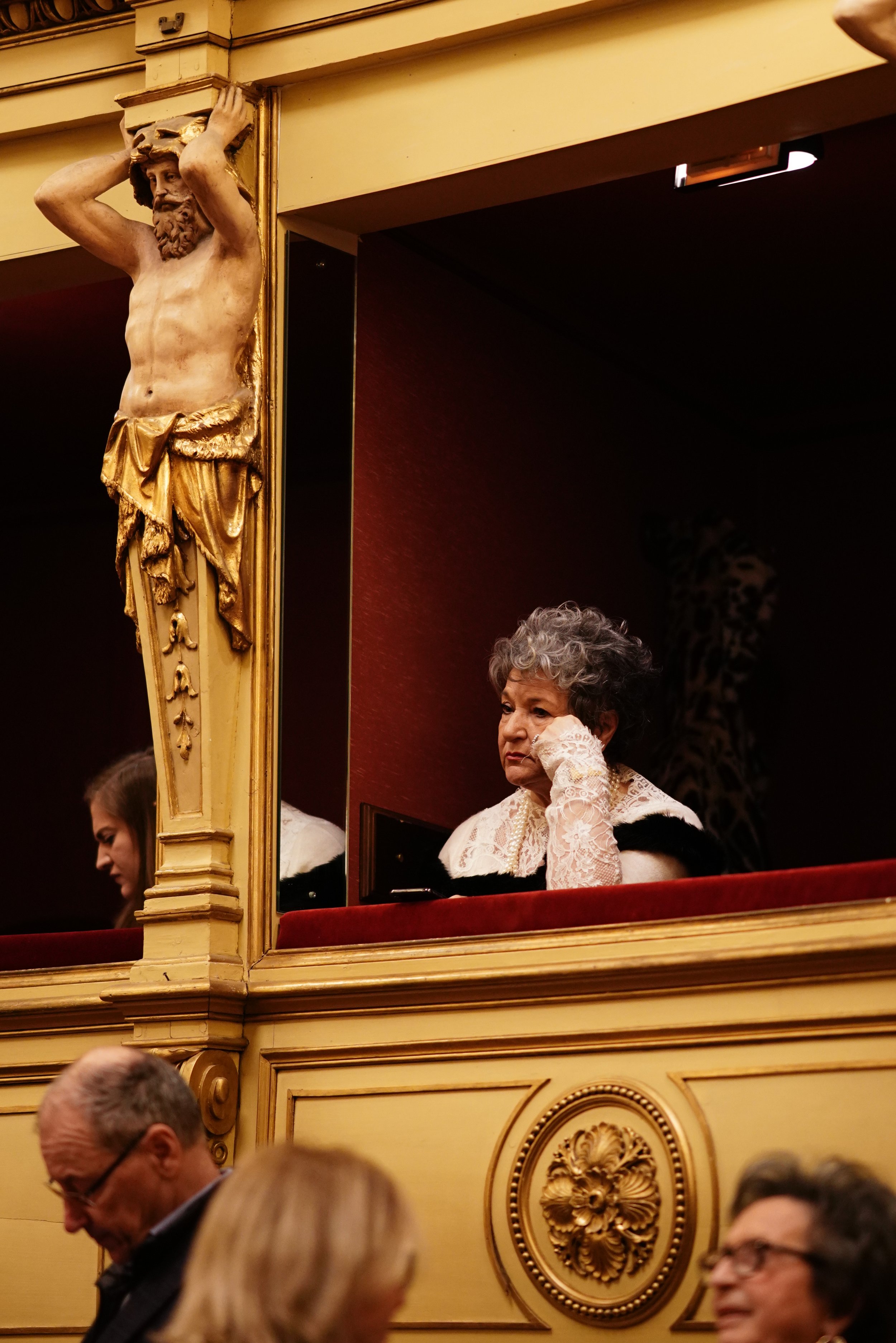
A woman listening to a violin concert in the Giuseppe Verdi Theatre in Trieste in Italy, where Niccolo Paganini played in 1828.

Niccolo Paganini 's portrait enlarged, printed and photographed by Albano Paganini C.L along with his other ancestors
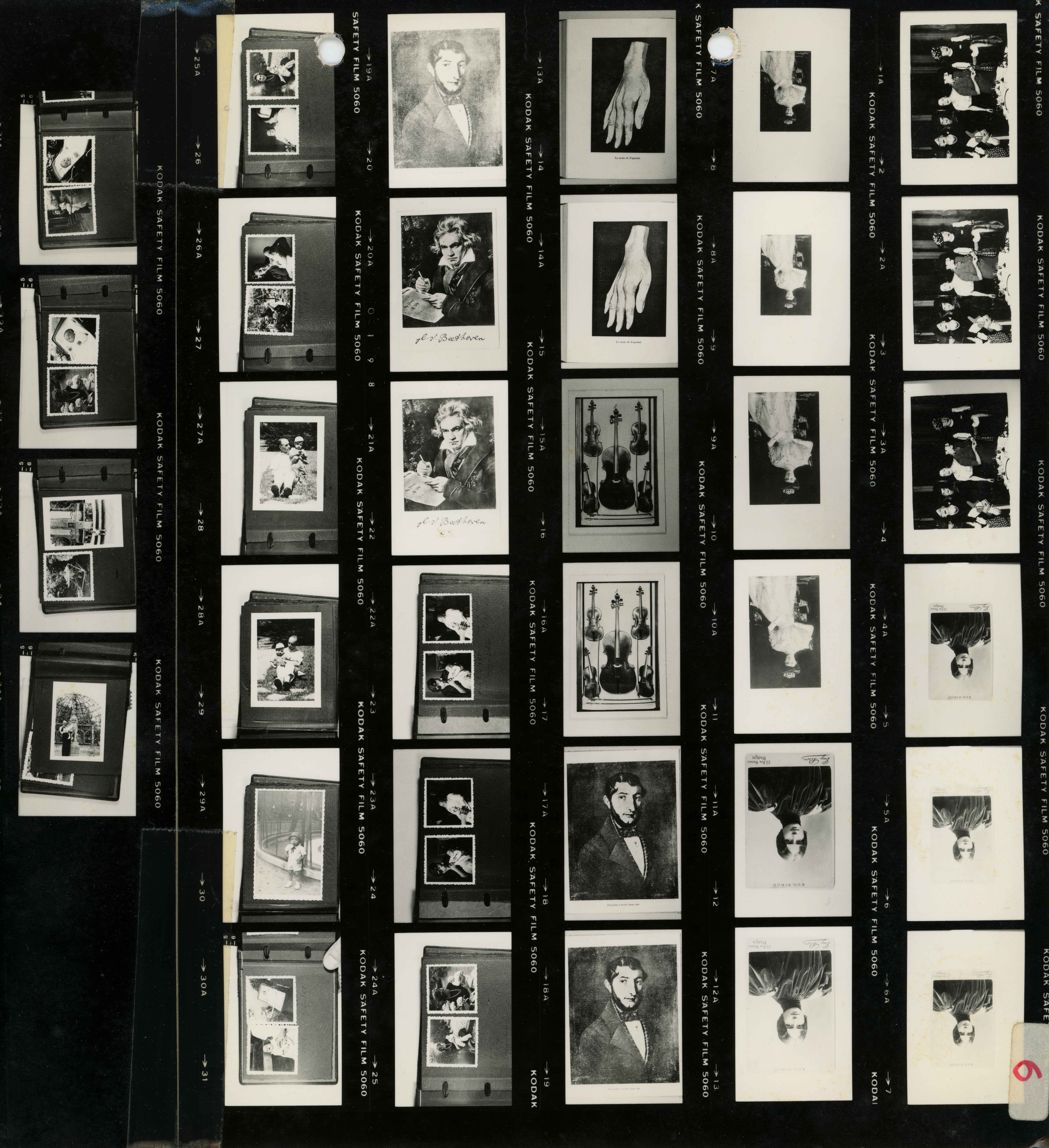
My father took photographs of the Paganini family albums and of Niccolo Paganini biographies, which resulted in uniting events 100 years apart in one contact sheet. 1970s
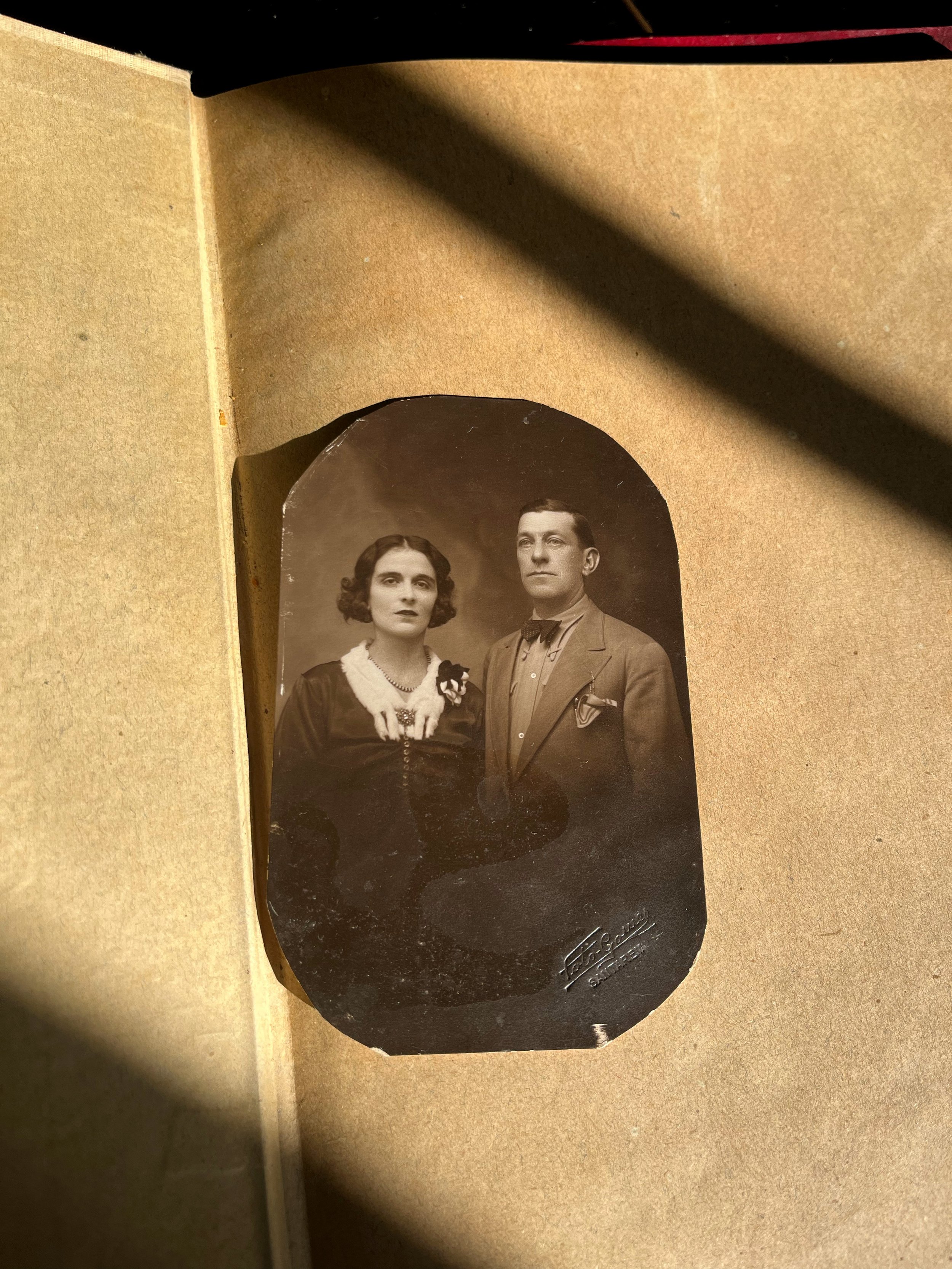
In October 2020 I emailed the local newspaper of Alpiarça - where the Portuguese Paganinis were based from the mid 1850’s until the 1930’s. The answer I got was “ I am sorry to inform you that all the Paganini’s are dead. The Paganini family no longer exists”. As life affirming as photography is and as revealing archives are, this project is a homage to this family and to prove they exist(ed).
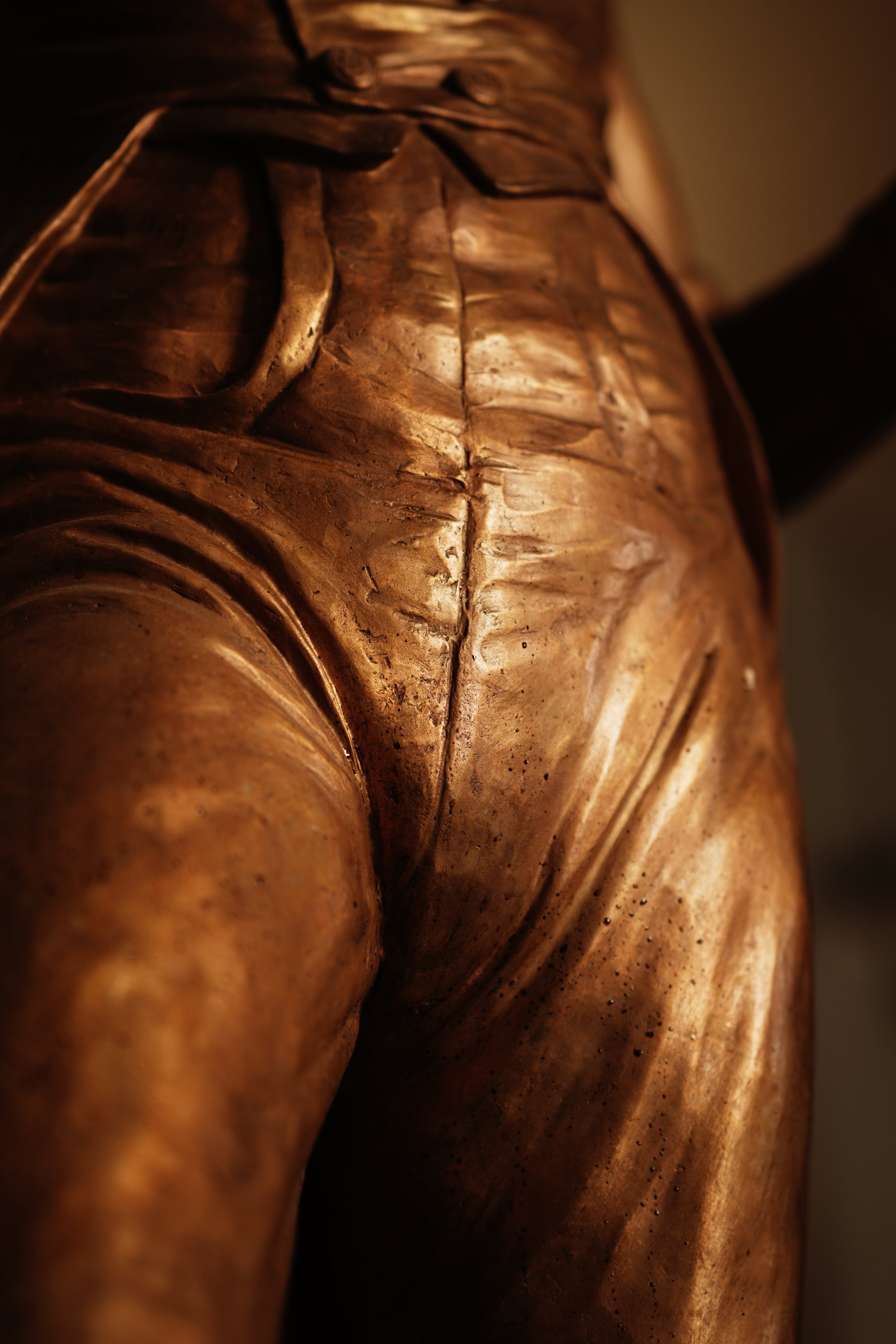
I get asked daily whether I descend from Niccolo Paganini. Genova, 2022.
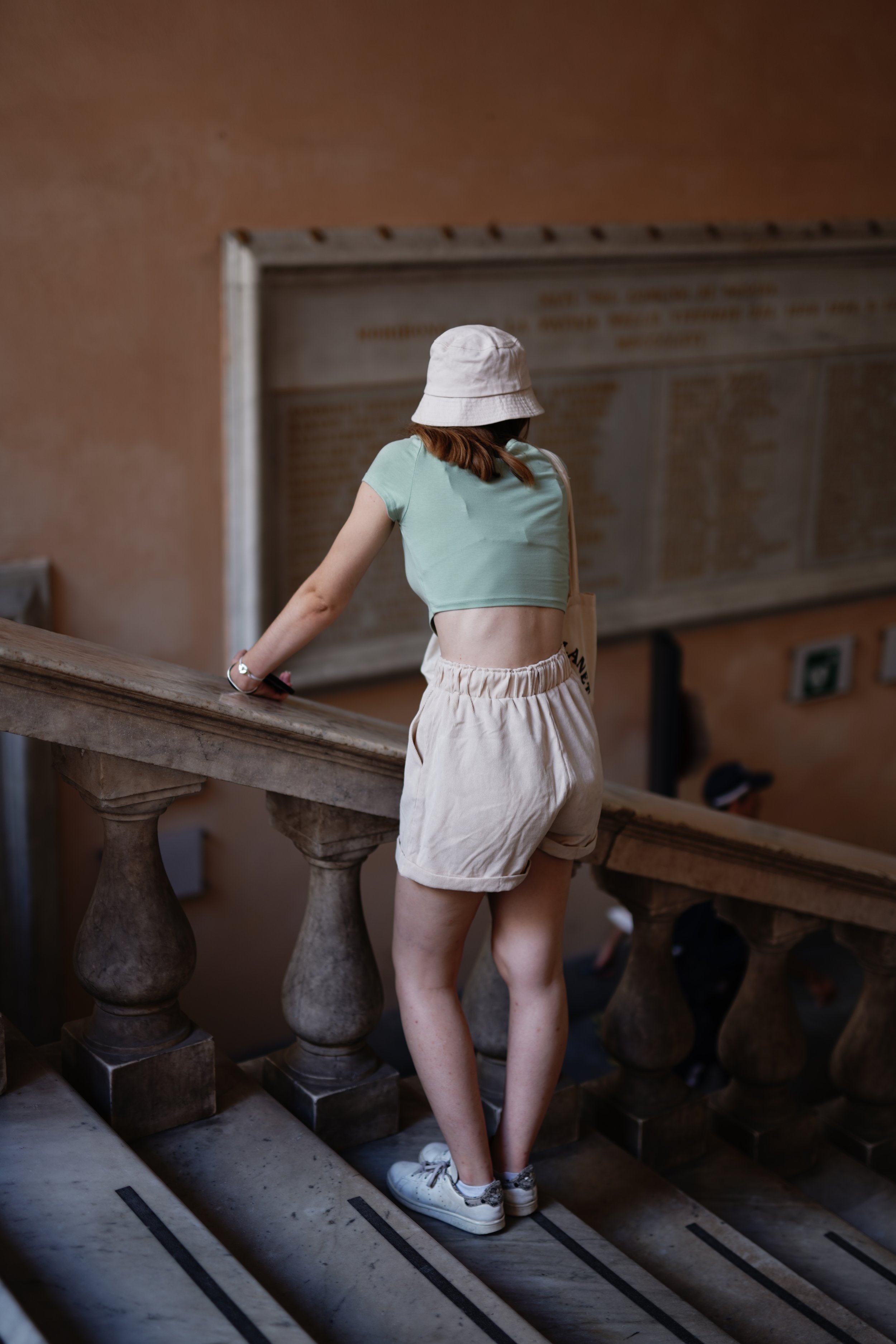
A girl in Genova after having seen the Paganini violin at the Palazzo Tursi. 2022
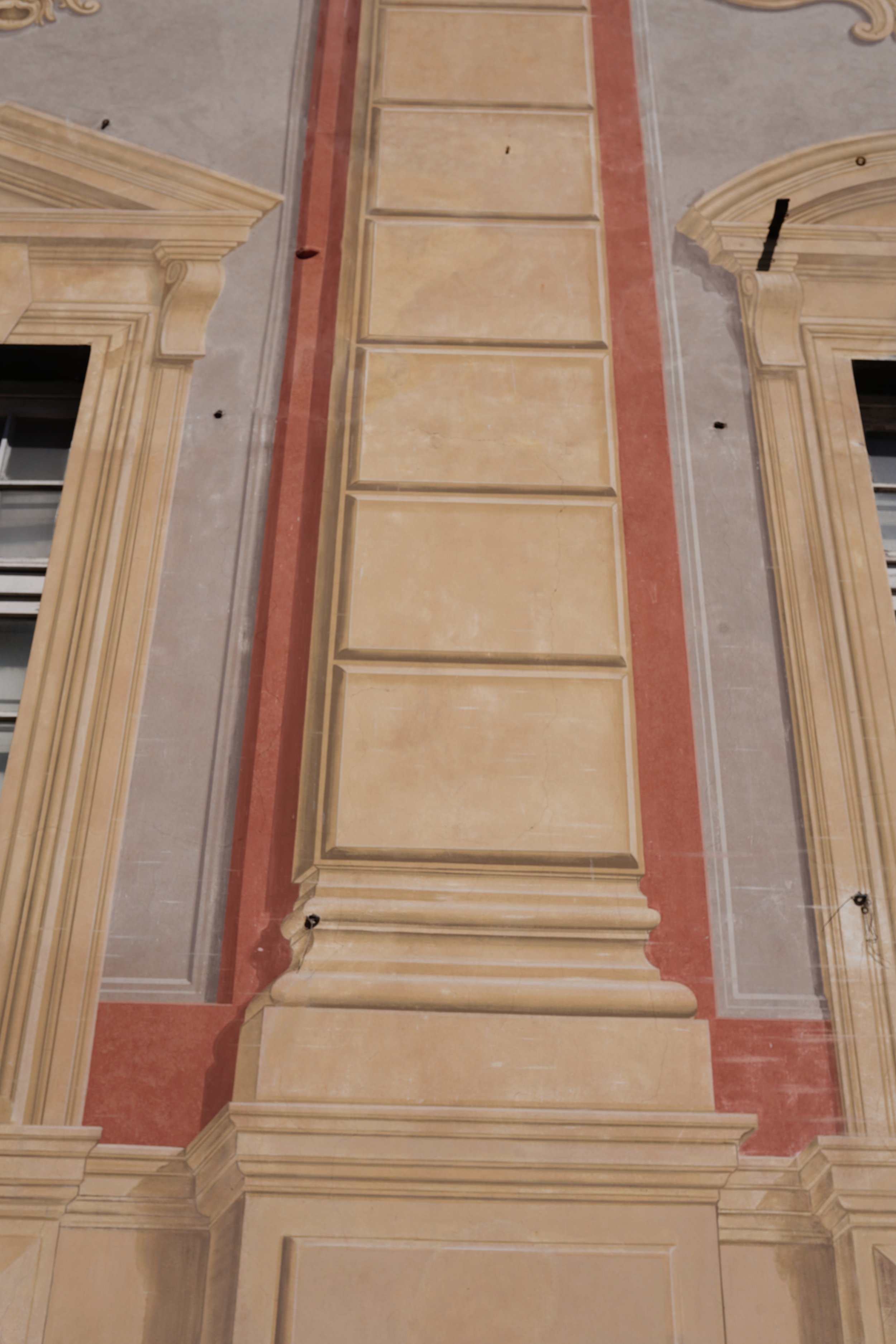
Paganini’s birthplace. The house where he was born no longer exists - Genova, 2022
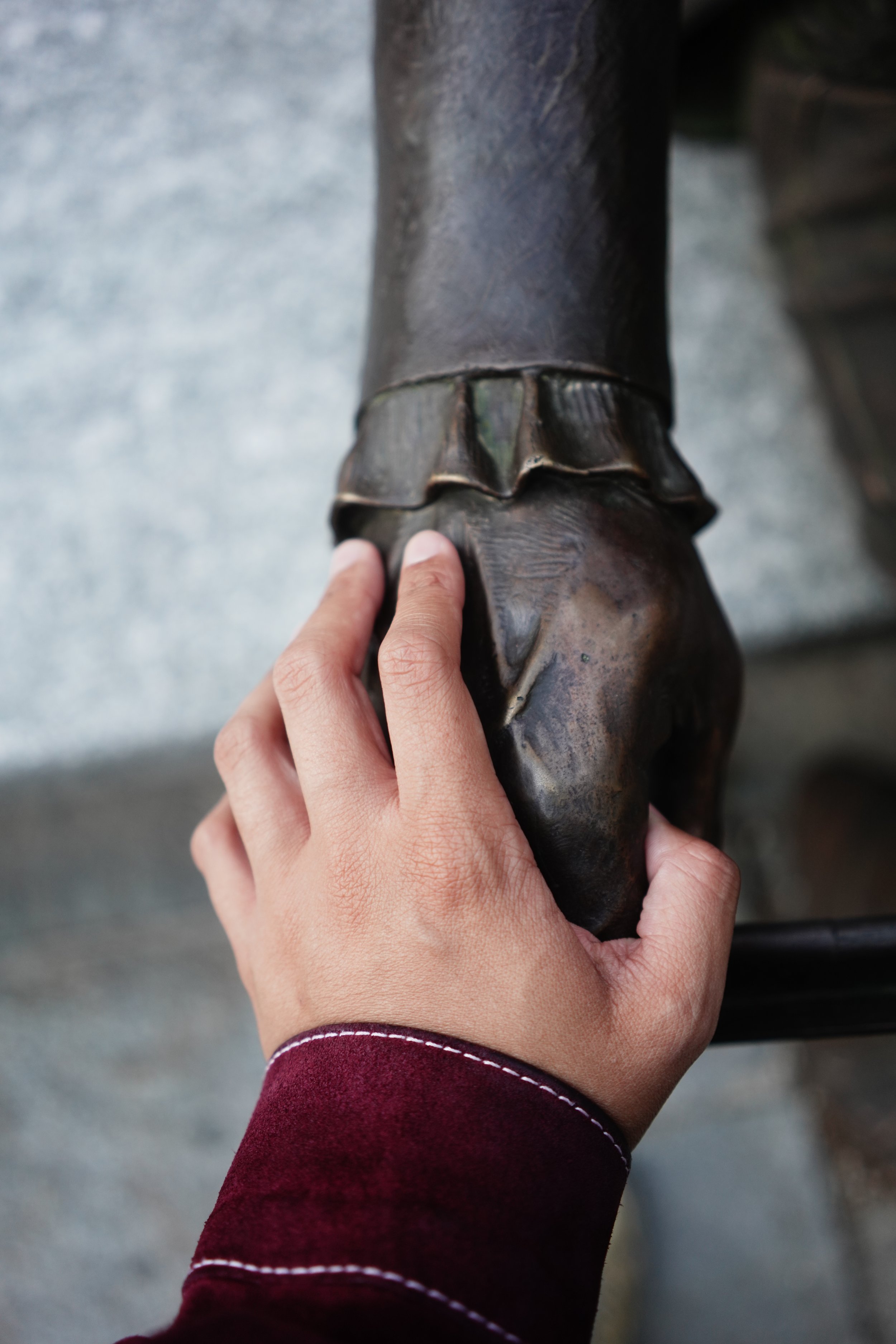
Niccolo and I, Parma 2022
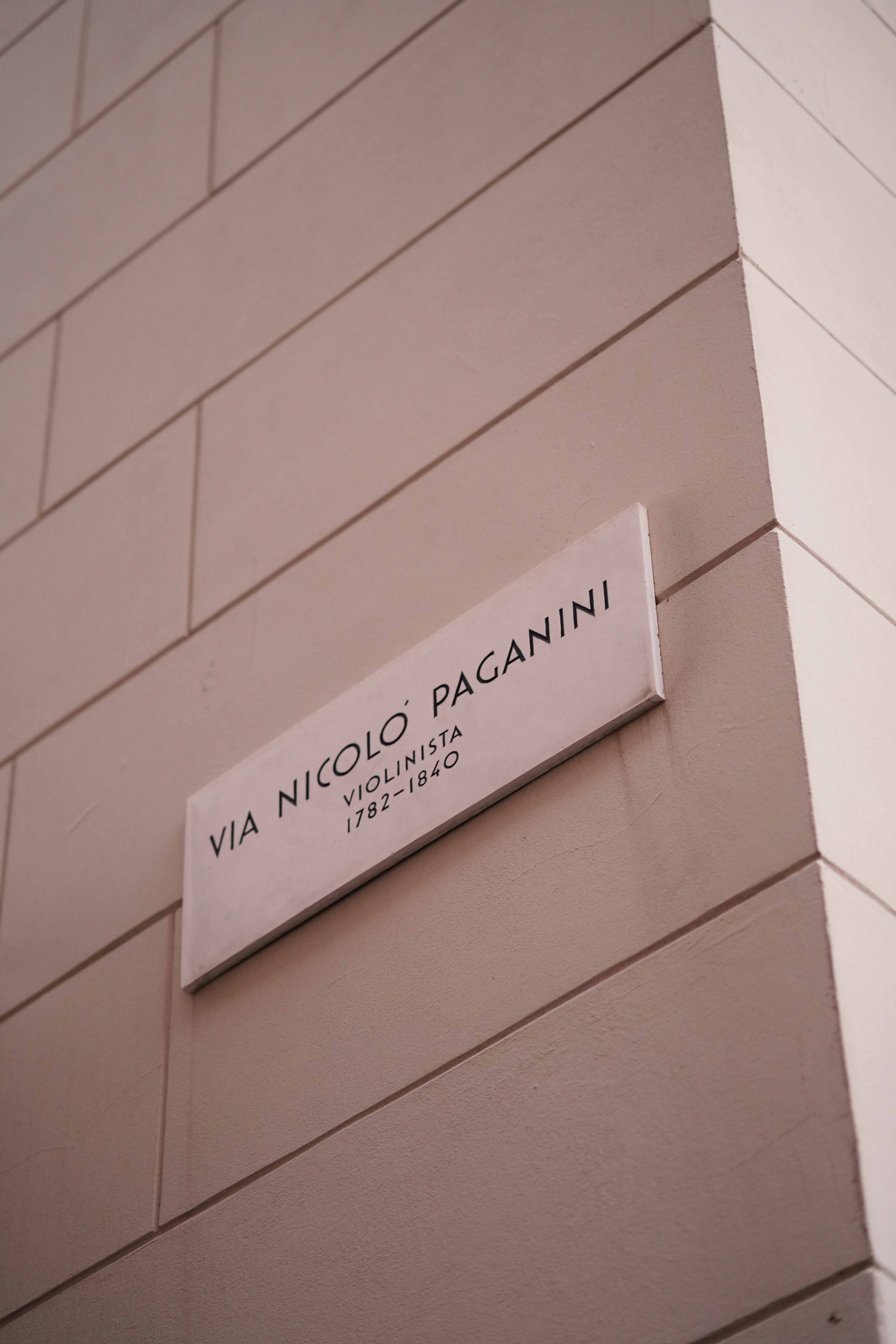
Via Niccolo Paganini in Trieste
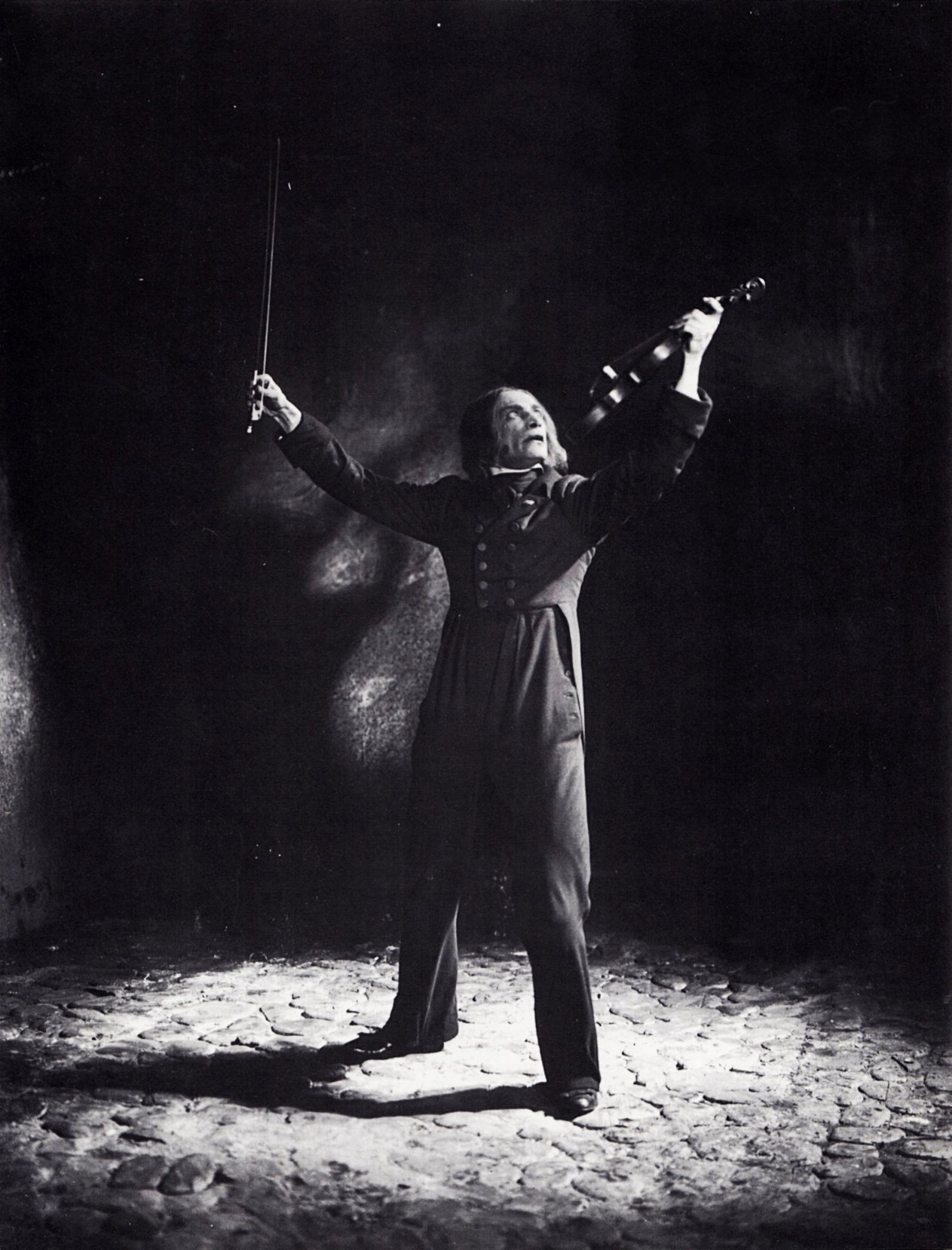
A still photograph from the 1923 historical film "Paganini" starring Conrad Veidt and directed by Heinz Goldberg. It's considered a lost film of the silent era, as it no longer exists in any studio archive, private collection, or public archive.
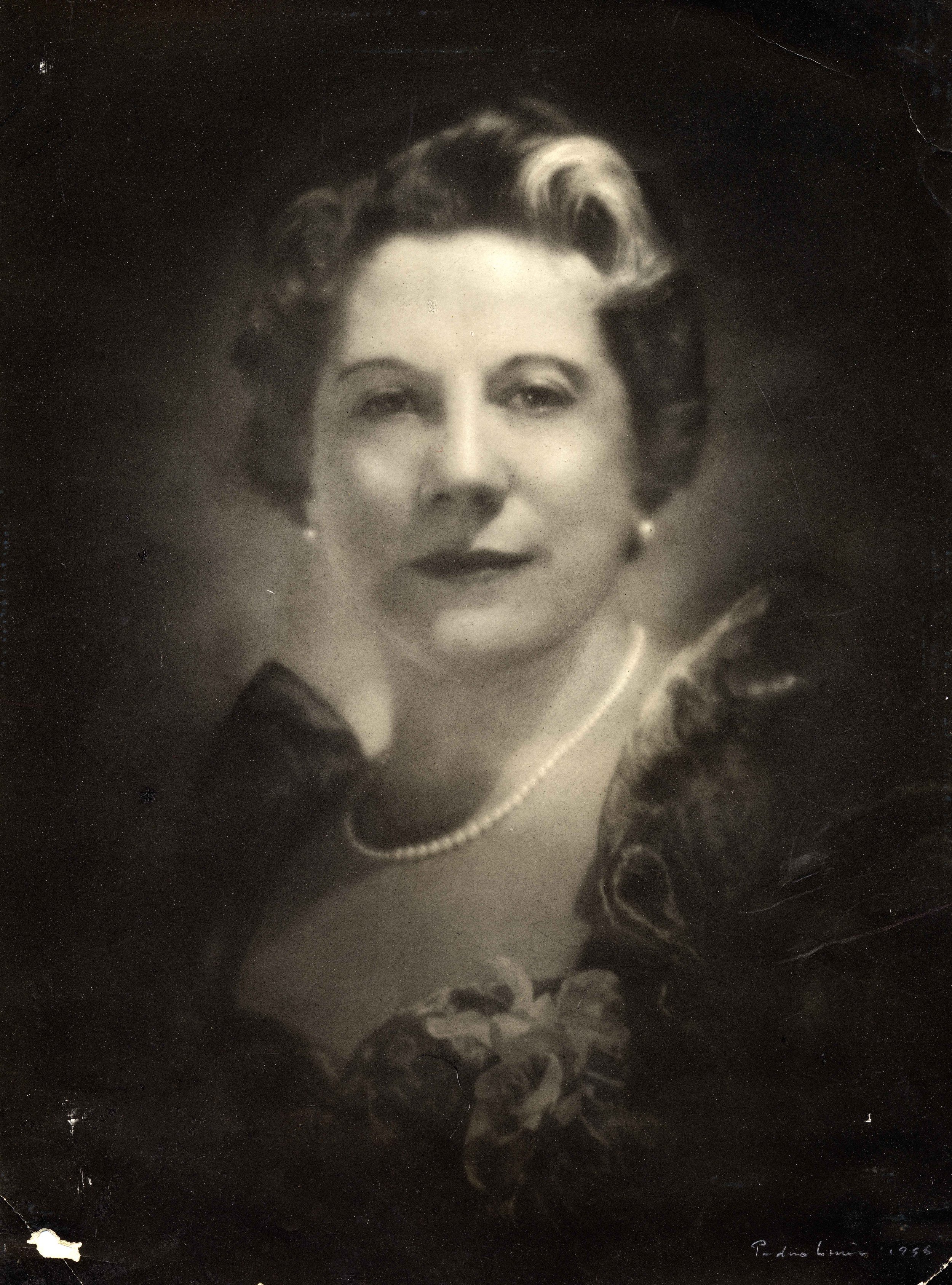
My great grandmother Maria Antonia Paganini, who dedicated a lot of time researching her great grandfather Niccolo Paganini’s life. 1950's.
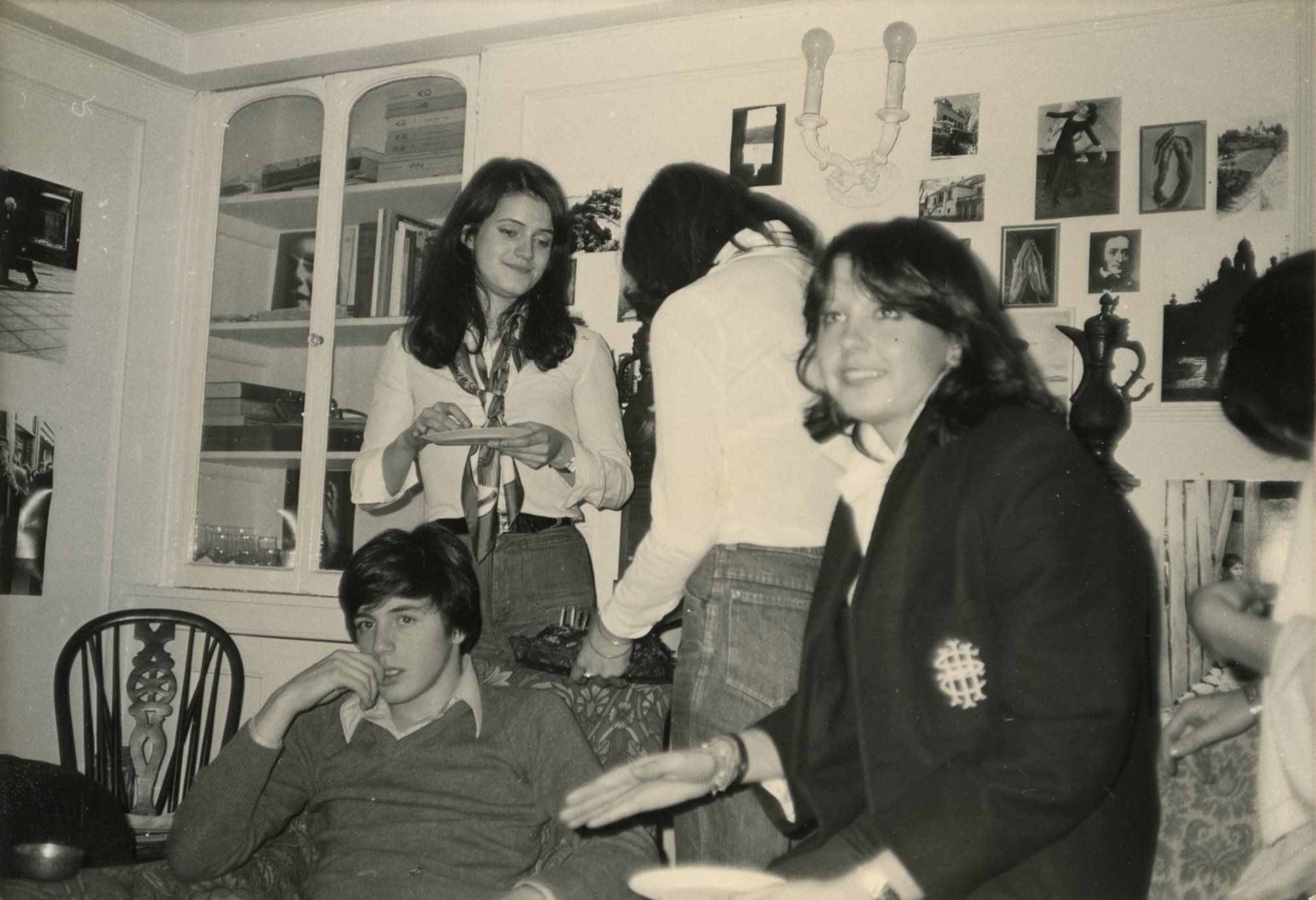
Niccolo Paganini was present in my father’s student flat in West London in the late 1970’s

My father Albano Paganini CL and Niccolo Paganini bound together in a film strip
1974
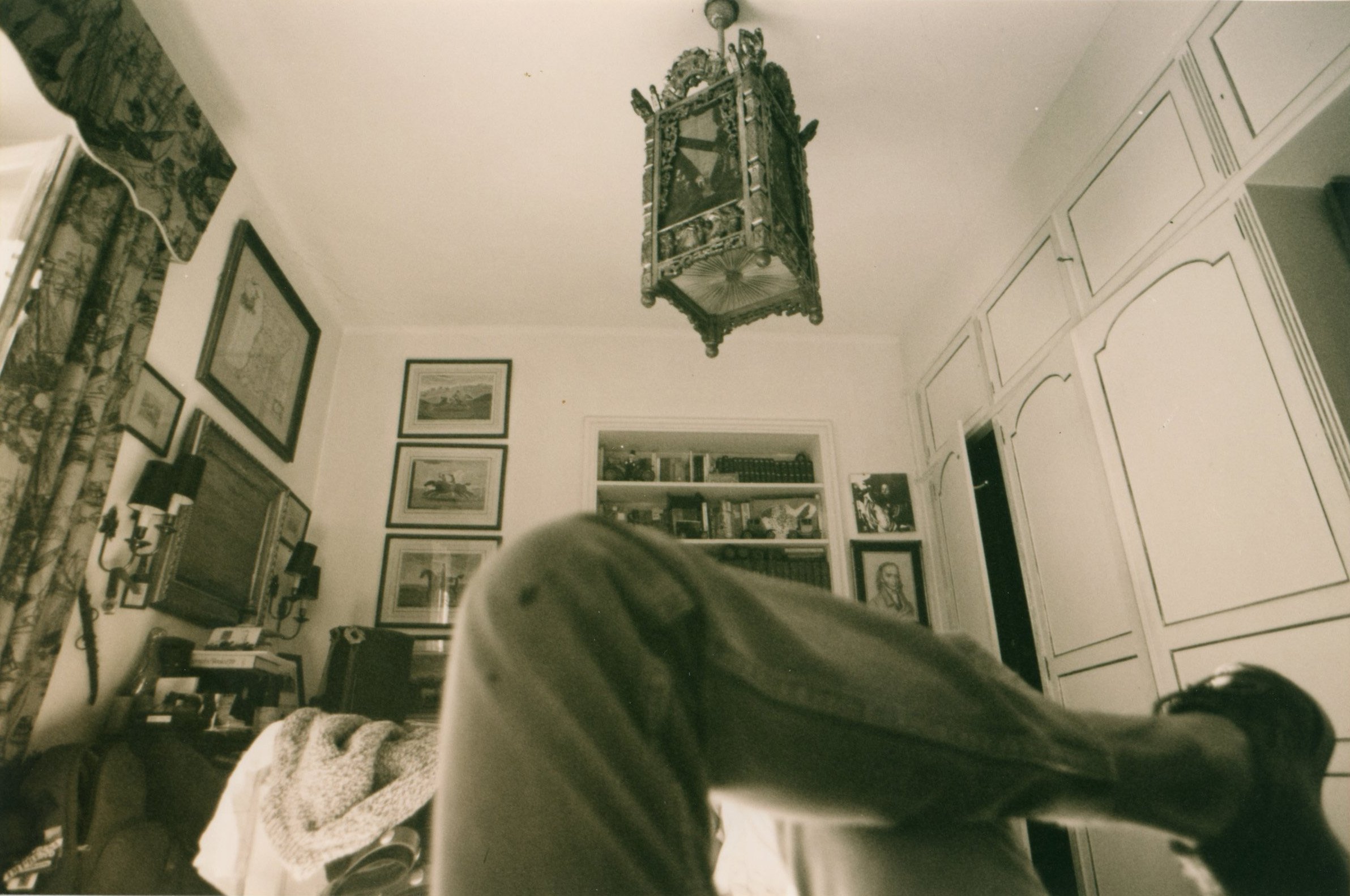
My father Albano Paganini CL and Niccolo Paganini
1990’s
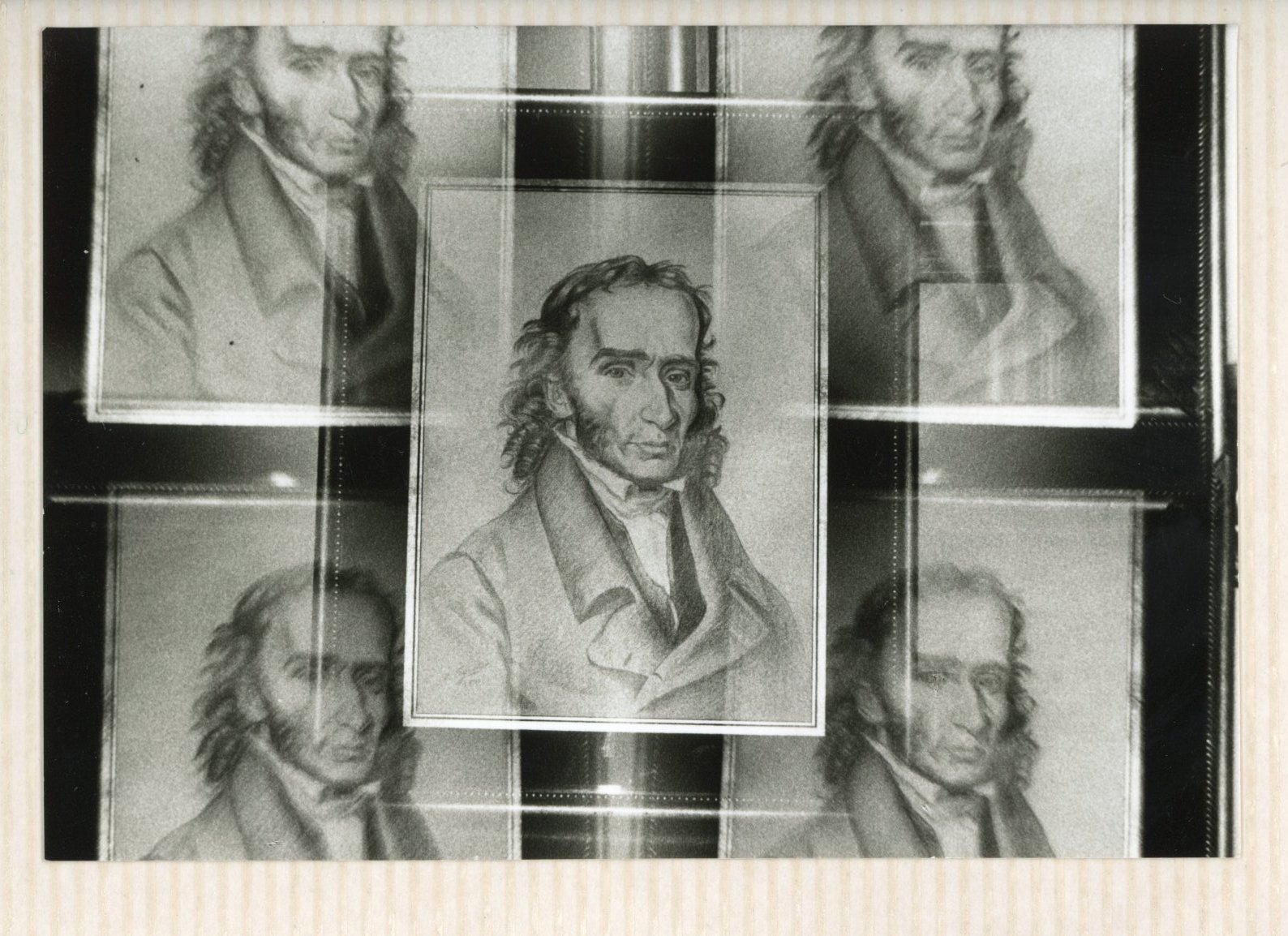
My father’s first photographs as a teenager were of paintings of Niccolo Paganini in the Paganini wall. 1970’s.

One hope remains: it is, that after my death, calumny will abandon its prey and those who have so cruelly avenged my triumphs, will leave my ashes at rest - Niccolo Paganini
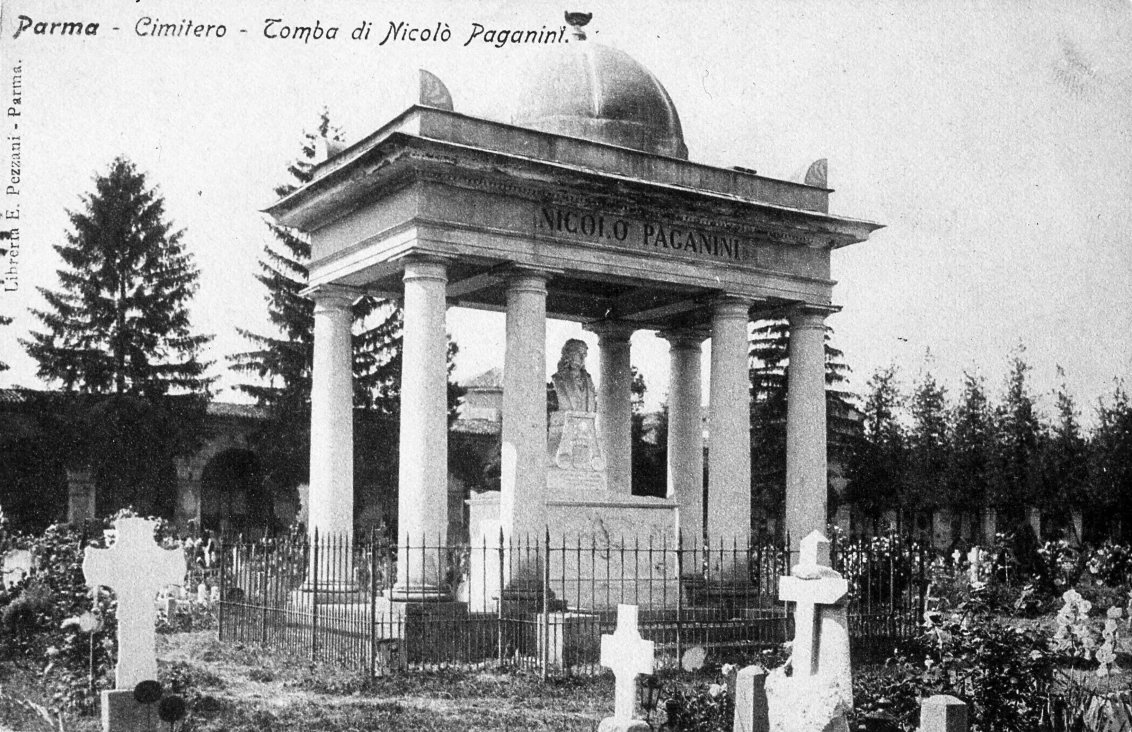
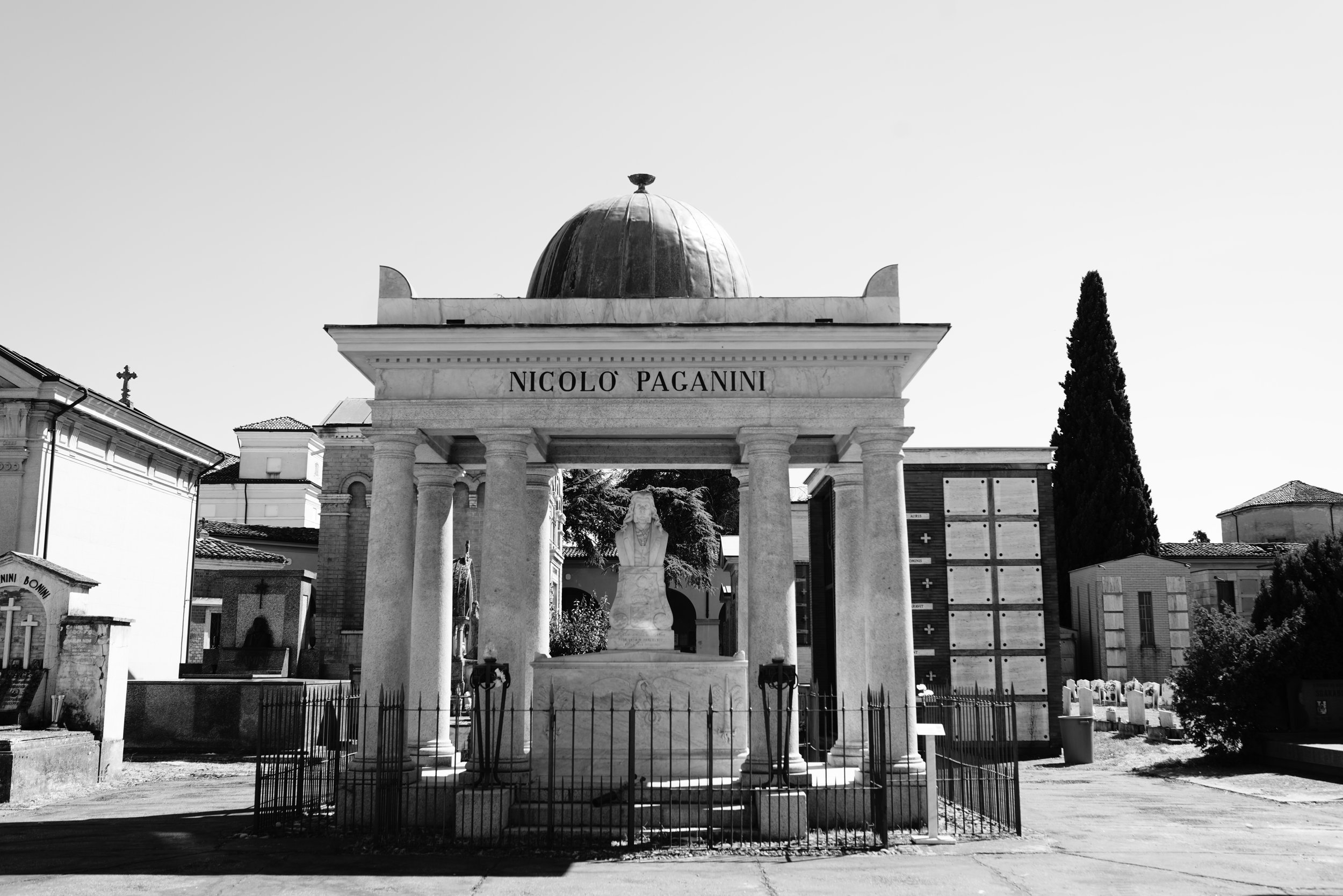
Paganini was said to have sold his soul to the devil in exchange for his talent therefore upon his death, the Church denied him a Catholic burial. Paganini's body was exhibited later buried and unburied several times in the 19th century, until he was finally put to rest in Parma, Italy in 1896.



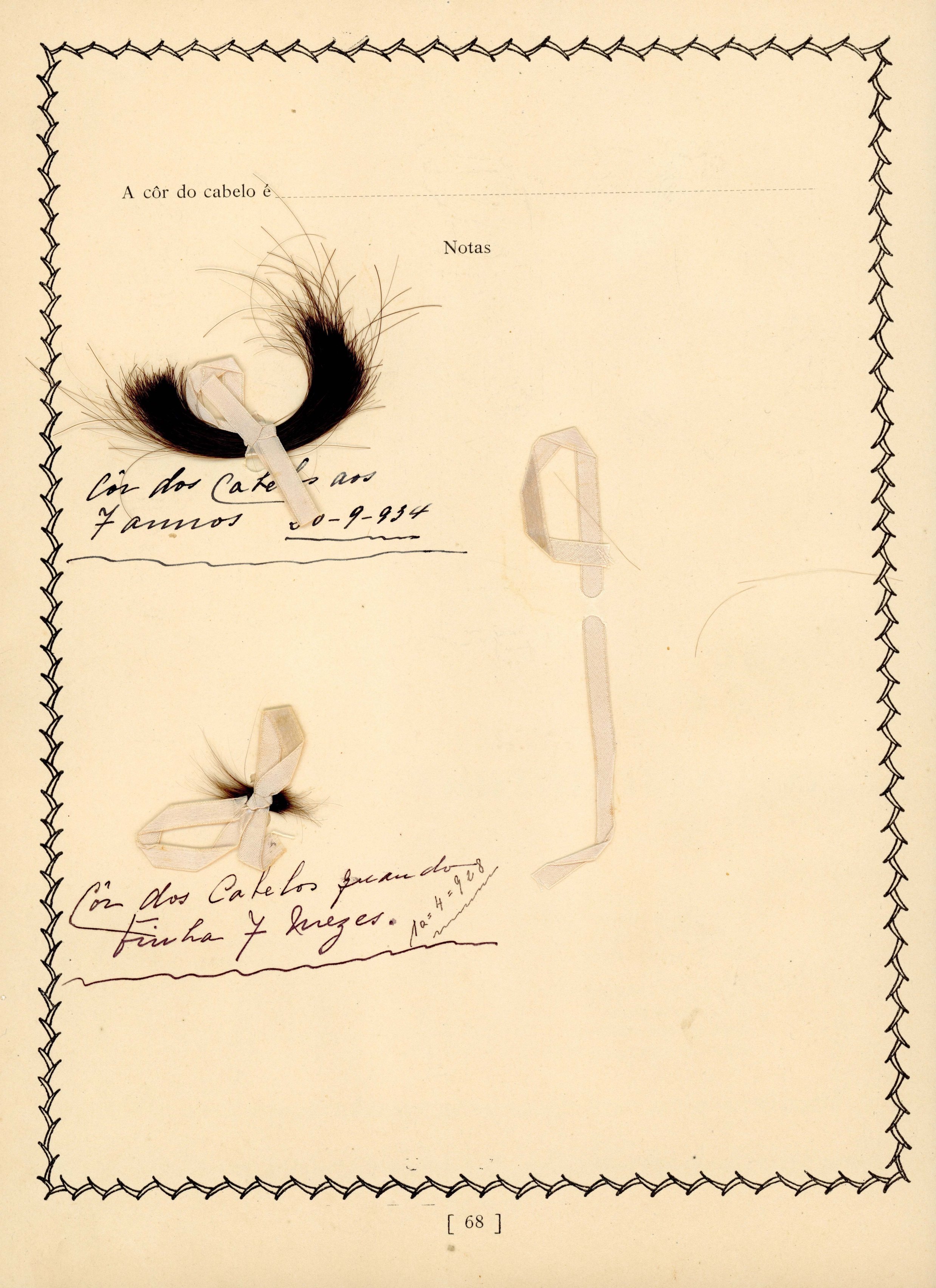
My grandmother's hairlock preserved since the 1920's means a genetic test with Niccolo Paganini is a possibility.
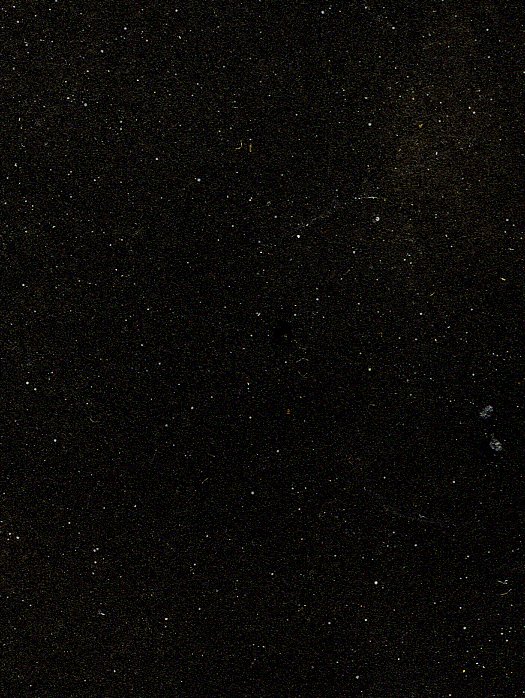
The Soviet astronomer Nikolai Chernykh discovered a minor planet in 1978 and named it after Niccolo Paganini.

Niccolo Paganini’s 242nd birthday

Niccolo Paganini’s 242nd birthday made from Giuseppe Fiorini's famously forged daguerreotype of Niccolo Paganini, discovered in 1900 in Turin, 60 years after Niccolo Paganini’s death.

Ana Paganini celebrating her 8th Grandfather Niccolo Paganini’s 242nd Birthday at Gremio Literario, on the 27th of October 2024
































Niccolo Paganini (1782-1840) was the most celebrated violin virtuoso of his time and beyond. It was transmitted to me by my father that Niccolo was my 7th grandfather and upon the death of my father I inherited Paganini memorabilia, and some of his personal belongings. I have embarked on several pilgrimages to Italy, France, Portugal, and Washington D.C to find evidence if his impact and lingering presence. This is a photograph of Niccolo Paganini 61 years after his death. Although no photographs of Paganini seem to exist, this daguerreotype was famously forged in Turin in 1901. It was one of the first photo hoaxes in the history of photography.
The Paganini wall was a permanent form of tribute to Niccolo Paganini at my grandmother Milu Paganini’s house. The wall embodied the devotion towards him. 1970s
The Paganini books which I inherited represent both my material and immaterial heritage.
Eugène Delacroix’s Paganini. Delacroix had seen Paganini perform at the Paris Opera in 1831 and painted it soon after. 91 years after that, Duncan Phillips acquired the painting, which he called a “tiny soul-portrait”. 101 years after that I saw it at the Phillips Collection in D.C.
Niccolo Paganini's violin case at Palazzo Tursi in Genova. 2022
An etching of Niccolo Paganini 's audience at Teatro Scala in Milan, in 1813. All these people are now souls.
A woman listening to a violin concert in the Giuseppe Verdi Theatre in Trieste in Italy, where Niccolo Paganini played in 1828.
Niccolo Paganini 's portrait enlarged, printed and photographed by Albano Paganini C.L along with his other ancestors
My father took photographs of the Paganini family albums and of Niccolo Paganini biographies, which resulted in uniting events 100 years apart in one contact sheet. 1970s
In October 2020 I emailed the local newspaper of Alpiarça - where the Portuguese Paganinis were based from the mid 1850’s until the 1930’s. The answer I got was “ I am sorry to inform you that all the Paganini’s are dead. The Paganini family no longer exists”. As life affirming as photography is and as revealing archives are, this project is a homage to this family and to prove they exist(ed).
I get asked daily whether I descend from Niccolo Paganini. Genova, 2022.
A girl in Genova after having seen the Paganini violin at the Palazzo Tursi. 2022
Paganini’s birthplace. The house where he was born no longer exists - Genova, 2022
Niccolo and I, Parma 2022
Via Niccolo Paganini in Trieste
A still photograph from the 1923 historical film "Paganini" starring Conrad Veidt and directed by Heinz Goldberg. It's considered a lost film of the silent era, as it no longer exists in any studio archive, private collection, or public archive.
My great grandmother Maria Antonia Paganini, who dedicated a lot of time researching her great grandfather Niccolo Paganini’s life. 1950's.
Niccolo Paganini was present in my father’s student flat in West London in the late 1970’s
My father Albano Paganini CL and Niccolo Paganini bound together in a film strip
1974
My father Albano Paganini CL and Niccolo Paganini
1990’s
My father’s first photographs as a teenager were of paintings of Niccolo Paganini in the Paganini wall. 1970’s.
One hope remains: it is, that after my death, calumny will abandon its prey and those who have so cruelly avenged my triumphs, will leave my ashes at rest - Niccolo Paganini
Paganini was said to have sold his soul to the devil in exchange for his talent therefore upon his death, the Church denied him a Catholic burial. Paganini's body was exhibited later buried and unburied several times in the 19th century, until he was finally put to rest in Parma, Italy in 1896.
My grandmother's hairlock preserved since the 1920's means a genetic test with Niccolo Paganini is a possibility.
The Soviet astronomer Nikolai Chernykh discovered a minor planet in 1978 and named it after Niccolo Paganini.
Niccolo Paganini’s 242nd birthday
Niccolo Paganini’s 242nd birthday made from Giuseppe Fiorini's famously forged daguerreotype of Niccolo Paganini, discovered in 1900 in Turin, 60 years after Niccolo Paganini’s death.
Ana Paganini celebrating her 8th Grandfather Niccolo Paganini’s 242nd Birthday at Gremio Literario, on the 27th of October 2024